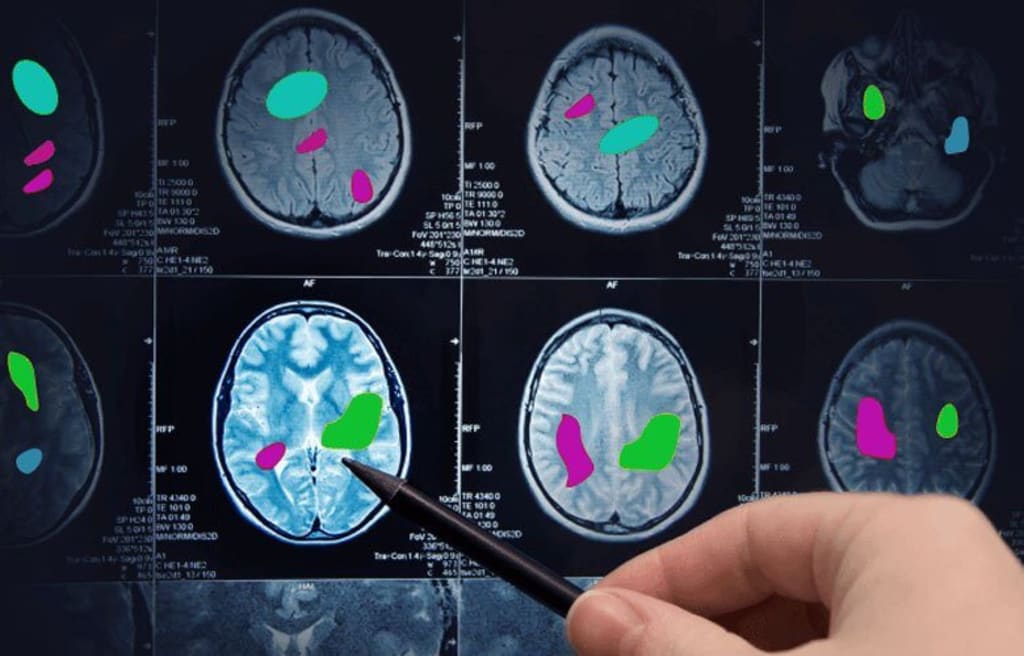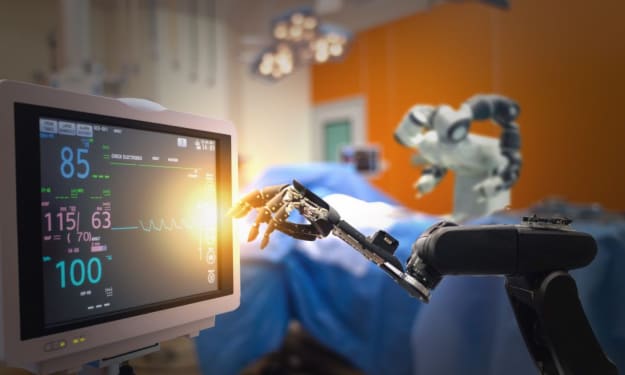AI in Healthcare: Trends and Applications
AI has become increasingly popular in the healthcare sector, with more companies integrating it into their systems

Growing populations around the world are experiencing (and contributing to) a shortage of healthcare workers, and the gap is expected to widen in the future. “The world will be short of 12.9 million healthcare workers by 2035; today, that figure stands at 7.2 million,” as per a recent report by the World Health Organization (WHO). Globally, billions of people will suffer serious health consequences if the findings in today’s WHO report are not addressed. Experts believe that integrating technology into healthcare and digitalizing the system can address future challenges.
The healthcare sector has been embracing artificial intelligence (AI) by using it to assist doctors, hospitals, pharmaceutical companies, and others in overcoming practical challenges. A growing number of healthcare stakeholders across various geographies are utilizing artificial intelligence to simplify the process of receiving healthcare. All economies, regardless of their development stage, are experiencing escalating costs and growing demand for care, making technology integration more necessary. Utilizing AI and big data to create a connected ecosystem of seamless and integrated care becomes imperative as a result.
How Big Tech Companies are Leveraging AI to Streamline Healthcare
AI has become increasingly popular in the healthcare sector, with more companies integrating it into their systems. Big tech companies are leveraging a considerable quantum of data to train their programs/platforms for advanced healthcare applications like drug discovery, disease diagnosis, and others. All healthcare stakeholders, from providers to payers, are keen to deploy AI in respective platforms and processes such as mining medical data, designing treatment plans & procedures, disease detection, drug development, and various others.
The big tech companies are shifting their attention to developing AI-enhanced tools to assist healthcare systems in overcoming future challenges. For instance, IBM’s Watson and Google’s DeepMind are true examples of AI deployment for tackling real-world challenges in medical practice. Watson, a specialized artificial intelligence platform, recently demonstrated its potential in the healthcare industry after diagnosing a woman with leukemia. Google, through DeepMind, is also creating disruption in the healthcare space by using artificial intelligence to detect and analyze health risks.
Current Trends of AI in Healthcare
It is possible for AI to make a significant impact in the healthcare sector when it comes to data mining medical records. Analytics and artificial intelligence can be combined to develop predictive models that can assist doctors in diagnosing diseases earlier. Technology and healthcare experts have been found to be concluding that AI and predictive analytics must work in tandem to achieve the desired outcomes, which will not only make healthcare more efficient but also affordable.
AI has led to a rapid transformation of the healthcare sector globally. Listed below are some current trends in healthcare where AI is making a huge impact on enhancing clinical practice.
AI in Medical Diagnosis
AI has already been deployed in a few hospitals to diagnose critical diseases like cancer. This is advantageous as it provides more accuracy in detecting the condition at an early stage. For example, Enlitic, a US-based medical imaging startup, uses deep learning for tumor detection. The tool demonstrates the use of artificial intelligence in medical diagnosis — it works on AI algorithms to detect tumors in human lungs with the help of a Computed Tomography (CT) scan
AI in Medical Data Mining
Data is important in clinical diagnosis processes. Having the right tool on hand to extract data from medical records can make disease diagnosis easier for medical practitioners. Data mining of medical records is currently being conducted using artificial intelligence. With IBM Watson Health, healthcare organizations are able to unlock vast amounts of health data, resulting in better diagnosis and treatment.
Chatbots for Health Assisting
A chatbot powered by artificial intelligence is being used as a personal trainer and as a health assistant. Chatbots can be used to schedule doctor appointments, remind patients to take their medications, and identify conditions based on their symptoms. Many AI-based healthcare assistant apps, such as Babylon Health and Your MD, harness the potential of AI to assist physicians, patients, and caregivers with their healthcare regime.
AI-powered Surgical Robots
Machine learning applications such as Google DeepMind, IBM Watson, and others are currently being used by technology companies to conceptualize AI-based surgical robots. It is possible to decrease damage, increase precision, and speed up recovery by using robots with AI capabilities.
AI for Drug Discovery
As AI technologies become more prevalent, drug discovery is also becoming increasingly automated. With Helix, researchers can stay updated on relevant research topics, manage inventory, improve lab safety, and increase efficiency by answering verbal questions and requests with machine learning.
AI Use in Clinical Trials
Various streams of biomedical data and healthcare data are converted into computer models using artificial intelligence, as with GNS Healthcare. By identifying patients’ characteristics, these models help doctors to provide personalized medicine and treatment to a large number of people.
Healthcare is among the most fundamental requirements of humankind. As we see the pace of population growth in the coming years, the global healthcare system will be under an unbearable burden for healthcare delivery. Leveraging technologies, e.g., AI, machine learning, and others of the same league, will have a significant role to play in the course ahead to meet global healthcare demands.
Final Thought
Needless to say that digital transformation is believed to transform the provision of healthcare by enabling the provision of accessible, affordable, and quality healthcare to people. For this reason, healthcare organizations are ready to engage AI platforms to achieve greater customer experience. Many countries, enabled by AI technologies, are showing progress in transforming the legacy models from being physician-centric to become more patient-centric, resulting in better medical practice and healthcare delivery.
About the Creator
Matthew McMullen
11+ Years Experience in machine learning and AI for collecting and providing the training data sets required for ML and AI development with quality testing and accuracy. Equipped with additional qualification in machine learning.






Comments
There are no comments for this story
Be the first to respond and start the conversation.